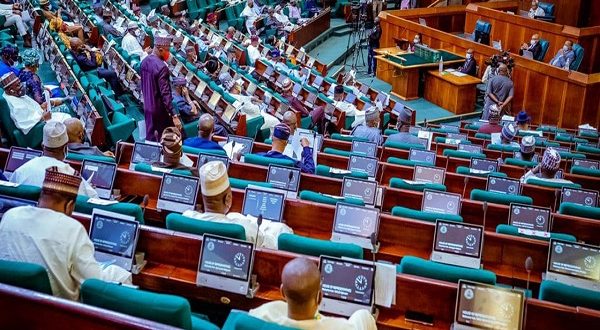Following the free fall of the naira in the past few months, the House of Representatives has called for a review of the 2024 budget projections.
The call was raised during the plenary session on Thursday.
The lawmakers adopted a motion on a matter of public urgent importance titled, “Need to evaluate the implications of the current exchange rates on the 2024 national budget implementation to ensure a balanced budget and increase in the standard of living of Nigerians.”
The motion which was moved by a member of the All Progressives Congress representing Kosofe Federal Constituency, Lagos State, Kafilat Ogbara, raised concerns on the fluctuating exchange rate of the naira to the dollar since the passage of the N28.7trn 2024 budget by the National Assembly and the subsequent assent by President Bola Tinubu.
Ogbara who doubles as the House Committee Chairman on Women Affairs and Social Development, said that the initial proposal of the Federal Government on the 2024 budget based on a projected N800 to the dollar was no longer feasible.
She stated that there is a causal relationship between the exchange rate movements and macroeconomic aggregates such as inflation, fiscal deficits, and economic growth.
She stressed that, “the persistent fluctuation of the exchange rate trended with major economic variables such as inflation, Gross Domestic Product and fiscal deficit in Nigeria, presently.”
According to her, when exchange rates change, the prices of imported goods will change in value, including domestic products that rely on imported parts and raw materials.
Adding that, “exchange rates also impact investment performance, interest rates, and inflation and can even extend to influence the job market and real estate sector.”
She also said, “The House is worried that the weighted Average Rate Nigerian Foreign Exchange Market hovers an average of $1 at N1, 488. 90, Pound at N1, 880. 1779, Euro at NI, 609. 35 and Swiss Franc at N1, 691.35 respectively.
“The House is worried that with the distortionary impact of the foreign exchange regime, the 2024 Appropriation Act would be difficult to implement due to foreign exchange volatility. Definitely, the exchange rates have already caused a major wide variance in personnel cost, recurrent expenditures and capital costs appropriated to the various Ministries, Departments and Agencies.”
 National Telescope national telescope newspaper
National Telescope national telescope newspaper



